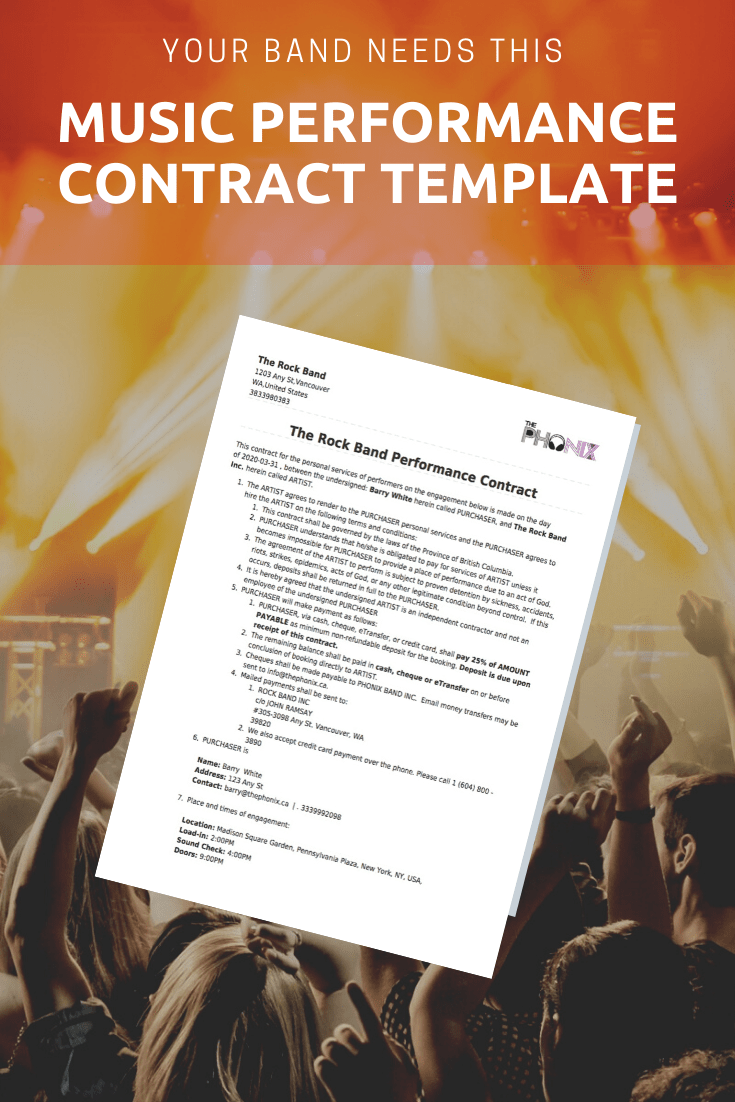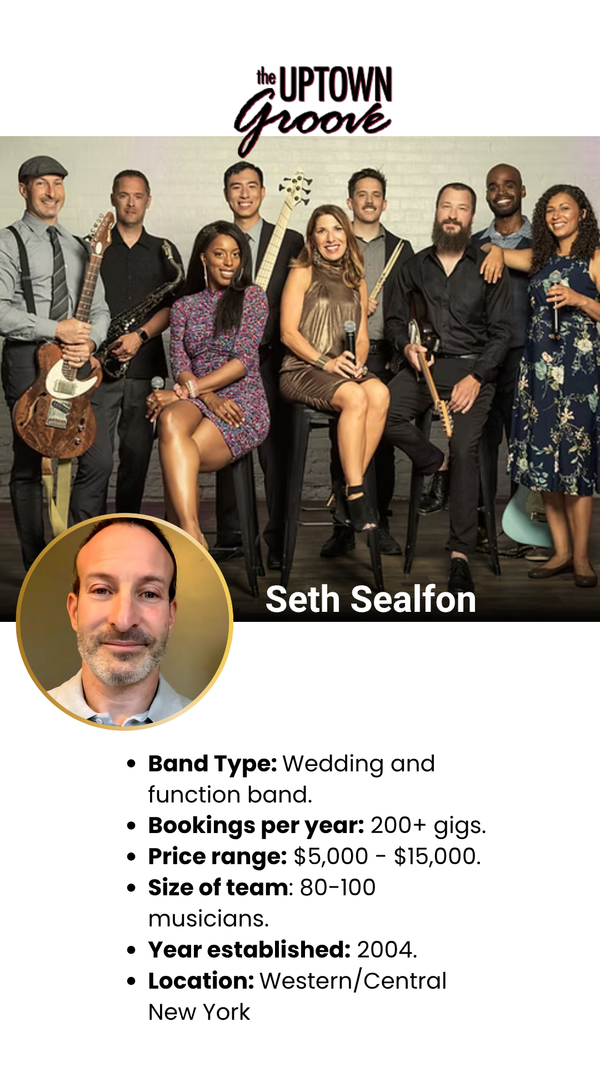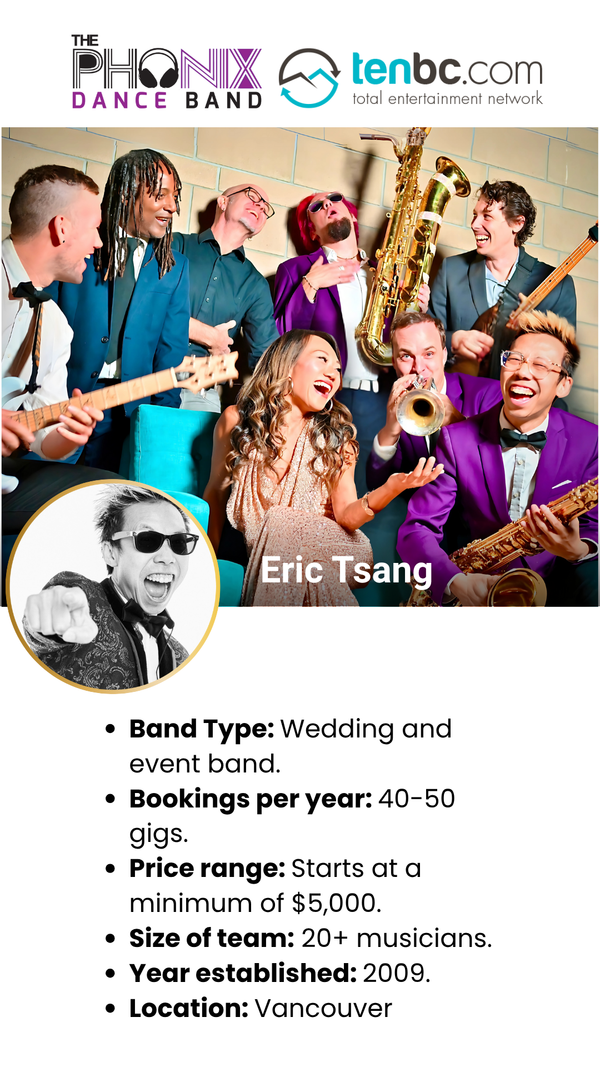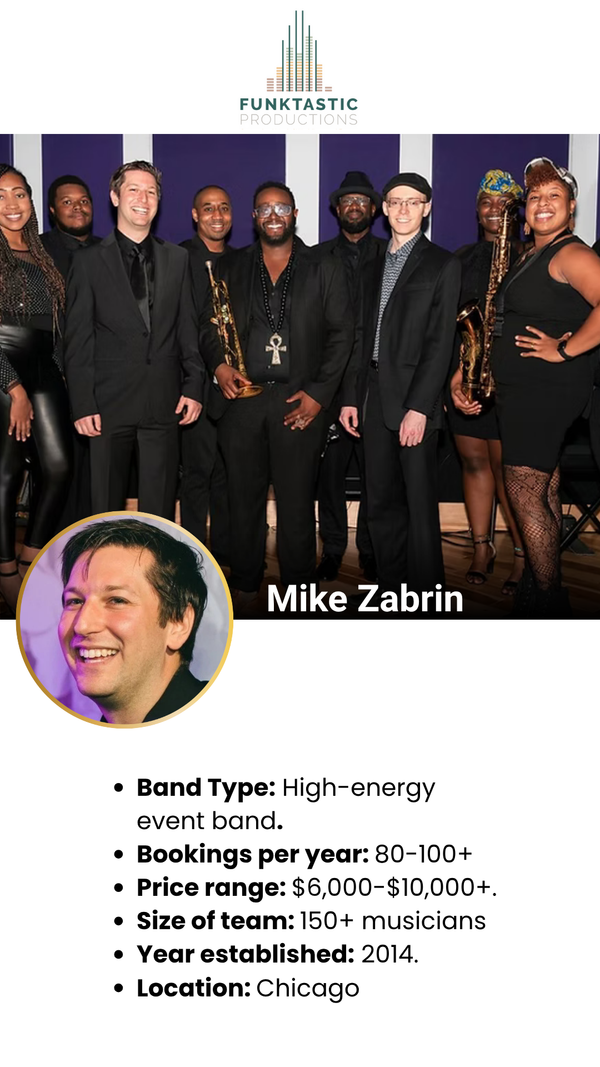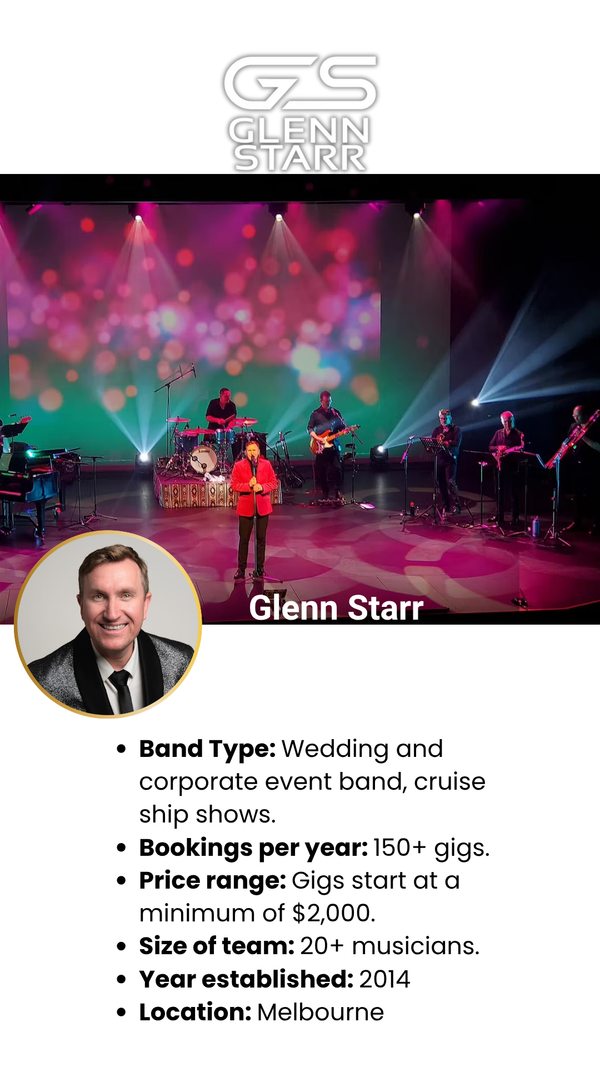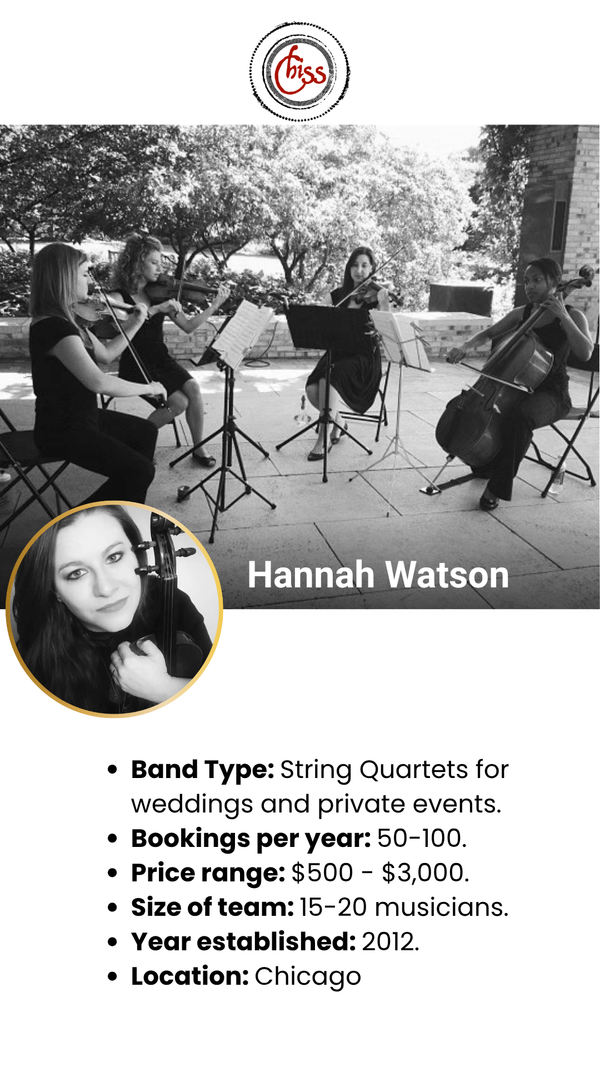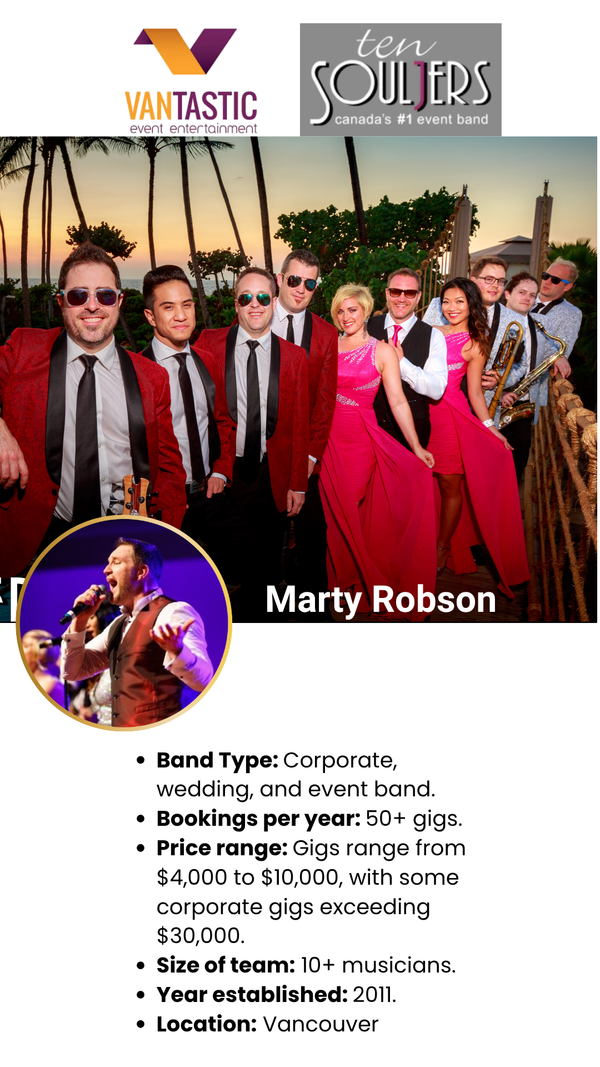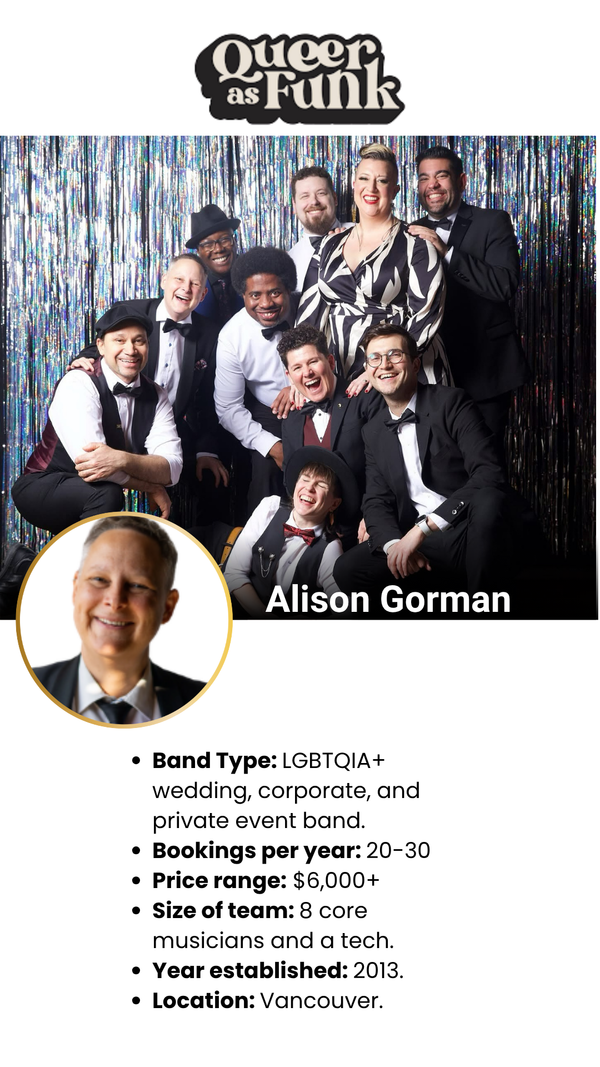Your Band Needs This Music Performance Contract Template

Imagine this, your band is supposed to perform at a private function. You and your group have been practicing throughout the months leading up to the gig. Suddenly, the event is canceled due to COVID or some other reason. Hopefully you already collected a non-refundable deposit, but unless you have a music performance contract in hand, you probably won’t receive the rest of your payment.
Remember Murphy’s Law? “Anything that can go wrong, will go wrong.” As a bandleader, you can beat Murphy’s law by having a signed music performance contract. It helps both parties to understand each other’s responsibilities for any unforeseen situation. Having a signed contract in place will ensure you and your band members get paid and eliminate problems, rain or shine.
In a hurry?
PRO TIP: If you don't want to waste hours of your time manually creating contract for each of your gigs, use Back On Stage app to automate the process for you. Your 30-day free trial includes a sample band performance contract and the template automatically fills itself for each of your gigs. Contracts in a click!
Who Needs a Music Performance Contract?
It takes two to tango when it comes to signing a performance contract. In this case, the two parties involved are:
- The client who hires you is the “Purchaser.”
- The bandleader, band, or musician is the “Artist.”
Once the Purchaser reaches out to hire a band for a show, they should agree and sign this document. The Artist, usually the bandleader, can then prepare the group for the performance. They will know upfront the details of the gig, plus how and when the “Purchaser” will pay.
A contract should spell out the what-ifs for both sides, such as no shows, cancellations, and other issues that could happen. Check out Why Use A Music Performance Contract for more information.
Always Include These Elements in Your Music Contract
Try to keep your contract as simple as possible while still protecting your interests. As your band and clientele grow, you’ll need to expand the agreement to cover contingencies that you may not need when you’re just starting.
Here are the essential elements you need in your performance contract.
Name and Contact Information of Both Parties
You’ll want to use legal names, not stage names here. Fill in complete street addresses, phone numbers, and email addresses. You want as much contact information about the other party as you can. In most jurisdictions, a contract is not considered legal unless there is a complete address for both parties, so don’t skip over this step. An email address doesn’t cut it!
Place and Times of Engagement
This element includes all the venue information such as the location, the venue’s name, the date and time of the performance.
Performance of Services
This section covers the details of the band’s performance. Items to include are:
- The number of musicians
- The number and length of sets
- Requirements for stage, sound, and lighting
- Any extra equipment or people such as a sound technician
Payment and Compensation
Here’s where you define the amount of pay for the performance, when you get paid, and the payment method. Compensation doesn't just mean money - you can also include things like hot meals, parking, travel expenses and hotel rooms here.
Deposit
For wedding and event bands, or established original bands with regular gigs, asking for a deposit is standard practice. Typically, the deposit is non-refundable but deducted from the total balance after the performance. In this case, “non-refundable” means that in the event of a cancellation, the deposit amount will not be returned. It is common for deposit amounts to equal 25-50% of the total contract amount.
Cancellation policy
Questions to address here are:
- What is the minimum notice for a cancellation?
- What if the venue or client cancel? Will the band receive the full compensation amount of the gig?
- What if the band cancels?
Relationship of Parties
The relationship section is legal jargon describing the “Artist” is not an employee of the “Purchaser.” The reason for this clause is to prevent liability issues and also to provide clarity for tax purposes.
Force Majeure
This clause is a legal term for “superior force” or unavoidable accident. It’s the section of a contract that relieves both parties in the event of a natural catastrophe, like a flood or tornado, that’s not anyone’s fault.
Terms and Conditions
In this section, you define, or "interpret" any important words in the contract that could possibly be ambiguous or have multiple meanings. You define the words as they apply to this particular contract so that neither party can make claims against the contract using outside definitions to suit their purposes.
Music Performance Contract Sample Template
Filling out a contract with the above sections and elements will give you a solid deal that will hold up in your area. Make sure you have it reviewed by an attorney who understands entertainment law in your area.
To get started, you can download this music performance contract template below. We have included a travel clause which you can remove if it’s not applicable.
But if you'd rather not have to manually fill out this contract for each of your gigs, sign up for a 30-day free trial of Back On Stage app to get a free contract template that automatically pre-fills itself for each of your gigs!
Sample Music Performance Contract



How to Use This Band Performance Contract
Manually filling out a new contract for each of your gigs is tedious and time consuming. You need to input all your client's details and event information, then double and triple check it for errors. The last thing you want is to realize that you didn't include hotel costs in the original contract and then be out of pocket yourself when you need to book them (this happened to me once - not fun!)
The easiest way to save yourself 40+ minutes of contract data entry on each gig is to use contract software to handle the data input for you. After that, you'll have to send the contract to you client for signing. It's best to do this electronically and offer an e-signature option so that you get a fast response.
We've heard of bands using apps like PandaDocs and Docusign for contracts, but of course, we recommend Back On Stage band management app.
With any of these apps, you can load in your contract template and then just create duplicates of it each time you get another gig. With PandaDoc and Docusign, you'll still need to do a fair amount of manual data entry for each gig, and pay a subscription fee, but with Back On Stage, all the data entry is done for you.
Using Contract Software To Build, Send & Get Contracts Signed
For this, let's look at Back On Stage app. Since Back On Stage was built specifically for bands, the contract creation process is optimized for the band booking workflow.
It works like this:
- Fill out your gig details in the "Booking Creator" event details form, then save.
- Open the "Client Contract" generator, choose a contract template and watch as all your gig details are magically pre-filled into your contract.
- Save and send your contract to your client
- Your client gets an email with a link to your contract. They click, then sign electronically.
- You and your client each receive and email PDF copy of the signed contract
It's that simple!
Let me explain some of the magic behind the contract generator...
When you fill out your gig details in the Back On Stage "Booking Creator" event details form, each detail you enter is assigned to a "TOKEN". Tokens are magical placeholders that you can insert into your client contract templates so that when the contract is sent or printed, all your existing gig details are inserted in their places, saving you the headache of switching back and forth between multiple screens and apps to copy and paste all the right gig details into your contract.
Pretty cool, hey?!
You can generate a contract in a couple clicks and use that 40 minutes you just saved to go practice scales instead!
You Also Need a Band Performance Invoice
Having a great contract template will save you time and money. But it's only half of the picture when it comes to booking gigs and collecting payment from your clients.
A band gig invoice is also necessary to spell out the exact financial remuneration requirements for your performance.
An invoice is a formal payment request from one business to another and it is necessary when you are transacting with most wedding clients, special event planners, companies or venues.
Take a look at this sample band gig invoice generated by Back On Stage:

Sample Band Invoice Generated From Back On Stage
>> Grab a copy of our invoice template here <<
Like your contract, it's ideal for your invoice to be an electronic document that your client can pay online. Software like Quickbooks, Xero and Freshbooks will gladly take your money in exchange for their invoice tools, but why duplicate your booking details in yet another place, when you could just do it all within Back On Stage?
Just like the contract generator that's built in to Back On Stage, the invoice generator also uses your existing gig details to automatically generate an invoice for you, and with just a couple clicks, it is sent off to your client. They can make online payments and when they do, you'll be notified right away.
Learn more about the importance of having a band performance invoice and how to make one in article on Band and Musician Invoices.
Sign Up for a 30-Day Free Trial Of Back On Stage
Experience the ease of gig life while enjoying automatically generated gig invoices and contracts, all while reducing your band's operating costs, getting more gigs, maximizing tip revenue and managing musician and crew schedules automatically, with one simply monthly subscription to Back On Stage app.
Start Your 30-Day Free Trial Today
TL;DR
- Always Include These Elements in Your Music Contract
- Name and Contact Information of Both Parties
- Place and Times of Engagement
- Performance of Services
- Payment and Compensation
- Deposit
- Cancellation policy
- Relationship of Parties
- Force Majeure
- Terms and Conditions


